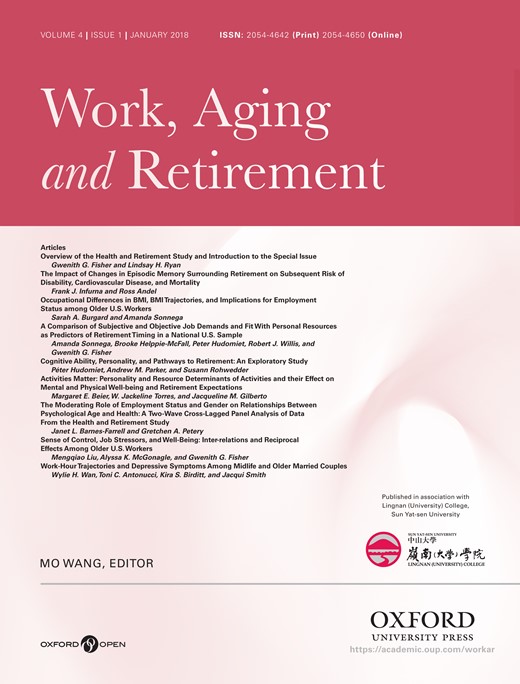-
Views
-
Cite
Cite
Amanda Sonnega, Brooke Helppie-McFall, Peter Hudomiet, Robert J Willis, Gwenith G Fisher, A Comparison of Subjective and Objective Job Demands and Fit With Personal Resources as Predictors of Retirement Timing in a National U.S. Sample, Work, Aging and Retirement, Volume 4, Issue 1, January 2018, Pages 37–51, https://doi.org/10.1093/workar/wax016
Close - Share Icon Share
Abstract
Population aging and attendant pressures on public budgets have spurred considerable interest in understanding factors that influence retirement timing. A range of sociodemographic and economic characteristics predict both earlier and later retirement. Less is known about the role of job characteristics on the work choices of older workers. Researchers are increasingly using the subjective ratings of job characteristics available in the Health and Retirement Study in conjunction with more objective measures of job characteristics from the Occupational Information Network (O*NET) database. Employing a theoretically-informed model of job demands-personal resources fit, we constructed mismatch measures between resources and job demands (both subjectively and objectively assessed) in physical, emotional, and cognitive domains. When we matched comparable measures across the 2 data sources in the domains of physical, emotional, and cognitive job demands, we found that both sources of information held predictive power in relation to retirement timing. Physical and emotional but not cognitive mismatch were associated with earlier retirement. We discuss theoretical and practical implications of these findings and directions for future research.



